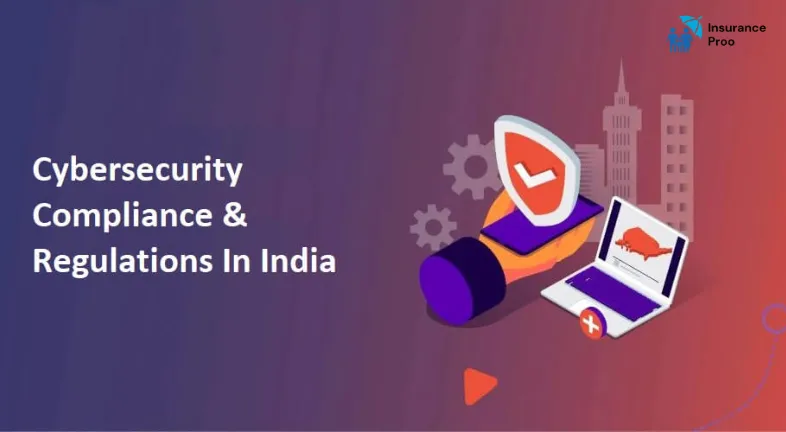Cybersecurity Insurance

In the present age of digitization, the threats associated with cyber-attacks tend to increase; no matter the magnitude of a company, it is never safe from the dangers that lurk on the internet. There are severe consequences of a cyber-attack on small enterprises such as taking operational pauses, loss of goodwill, and huge monetary constraints. At this moment, a vital shield is the insurance against cyber risks.
Cyber liability insurance is a commonly used term and cybersecurity insurance offers cover and provides tools to assist an organization in its operations after a data breach, ransomware attack, or other types of cyber attacks. In most cases, large corporations would have advanced cyber security systems in place, yet small companies tend to be more exposed due to the lack of infrastructure, expertise and resources. Therefore, it is quite paramount to have cyber security insurance.
This blog will examine the coverage of cybersecurity insurance, the necessity of having it for small businesses, and the process of selecting the appropriate policy for your specific needs.
Why Small Businesses Are Prime Targets for Cyberattacks

At times, the proprietors of small enterprises tend to think that their small size will protect them from any form of cybercrime. However, the repercussions of this misconception can be very dangerous. Most small businesses do not have the advanced security systems that are typical in big organizations making them easy targets of attacks. There are several factors that are making the situation worse for small businesses:
- Limited IT Resources: Small companies’ poor cybersecurity budgets make them often more susceptible to attacks.
- Lack of Awareness: Malware, phishing attempts, and other conventional cyberattacks may be undetectable to small business personnel.
- Valuable Data: Due to the handling of credit card data, personal identification information, and financial records- all of which are very rich consumer databases- many hackers target small businesses.
- Third-Party Vulnerabilities: Due to the handling of credit card data, personal identification information, and financial records- all of which are very rich consumer databases- many hackers target small businesses.
Given these risks, a single cyber incident can quickly spiral out of control and become an expensive and damaging affair. A fundamental safeguard that eases the rehabilitation of small entrepreneurs is cyberspace attack insurance.
What Is Cybersecurity Insurance?

By making use of cyber insurance – a kind of special insurance – the companies are able to recover the expenses they incurred due to money losses of data breach and cyber attack. Although it is not able to prevent them, it serves the purpose of softening the impact that such attacks have on the businesses by paying expenses for data recovery, legal representation, and even hiring of public relations agencies to soothe the affected clients.
There are two main types of cybersecurity insurance coverage:

- First-Party Coverage: This is inclusive of the management of business interruption, client notification of a breach, and direct company losses, such as data recovery costs.
- Third-Party Coverage: This encompasses allegations brought forth by third parties, for example clients or associates, who may have incurred losses due to the breach. Typically included are costs arising from regulatory penalties and legal expenses, as well as the costs incurred in settlement payments.
Key Benefits of Cybersecurity Insurance for Small Businesses:
Financial Protection

For small businesses, the financial impact of cyberattacks can be immense, not just in terms of the direct costs incurred. According to an article published by the Ponemon Institute, small enterprises on average incur a loss of $3.86 million from a single data breach. The precise amount will depend on the nature of the assault and the scale of the firm, but even a small portion of the aforementioned amount could cripple a small business.
In the case of cyber-attacks it is the costs incurred when responding to such an attack that are normally covered by a cybersecurity insurance policy. This includes hiring forensic it professionals to investigate the hack, recover compromised information and repair damaged infrastructure. Where a hack results in litigation or regulatory actions, legal costs, payment of damages and compliance costs may also be included.
Business Continuity

At times small enterprises experience operational disruptions due to cyber offences which can result in disappointed patrons and a loss in revenue. Cyber insurance comes in handy to fund the expenses incurred due to business interruptions, thus making sure that the organization remains operational during the process of recovery. This means that an organization can be able to run efficiently and avoid the damages of its brand being severely affected over a prolonged period.
Regulatory Compliance

Many industries, including healthcare and finance, implement strict data protection regulations. In the event of a cyberattack, however, a business that violates these regulations incurs the risk of fines from the state. Fines and regulatory penalties associated with non-compliance may be covered under cyber insurance.
Access to Cybersecurity Expertise

Various kinds of cyber liability insurance cover also provides access to some specialist firms in case of a cybercrime. Such include but are not limited to legal, public relations and IT forensics experts. This is very beneficial to small firms and organizations which do not have cybersecurity practitioners in-house as they will better cope with the threat of the data leak and its consequences.
How to Choose the Right Cybersecurity Insurance Policy

- Assess Your Risk
The initial phase involves assessing the extent of cyber exposure your firm faces. Take into account the operations of your business, the types of data that you store, and the existing cybersecurity measures in place. This will assist you in determining the appropriate level of coverage.
- Understand the Coverage
Confirm that the policy is tailored to meet your specific needs. Some policies may limit or specifically exclude coverage for certain losses, such as an income loss due to business interruption, or certain types of cyber incidences such as social engineering fraud. Cloak yourself in the provisions and the explanations of your insurance company whenever something is cloudy.
- Consider Policy Limits and Deductibles
Ensure that the limitations of coverage of the insurance policy are sufficient to mitigate the possible damage from a cyber-attack. In parallel, however, is the need to understand deductibles and their effect on one’s out of pocket expenses in case of a claim made.
- Work with a Trusted Provider
Opt for an insurance company that offers extensive experience in cyberspace insurance. They will be more suited to dealing with the unique risks your business encounters and will assist in formulating a well-rounded policy.
Conclusion
For a firm at the scope of a small business, the potential effects of a cyberattacker on the reputation and financial stability of the firm can be catastrophic. A Cyber security insurance offers a critical safety net or backstop, however, as no organization can completely rid the risk posed by the threat of cyber attacks. It helps businesses offset financial, legal, and reputational losses that may arise from a cyber event, data breach or any such occurrence. Cybersecurity insurance seeks to safeguard the prospects of small enterprises for successfully operating in the present-day digital environment alongside the challenges that they may encounter from its current operations.
Read More :- Retirement and Annuity Insurance Trends











